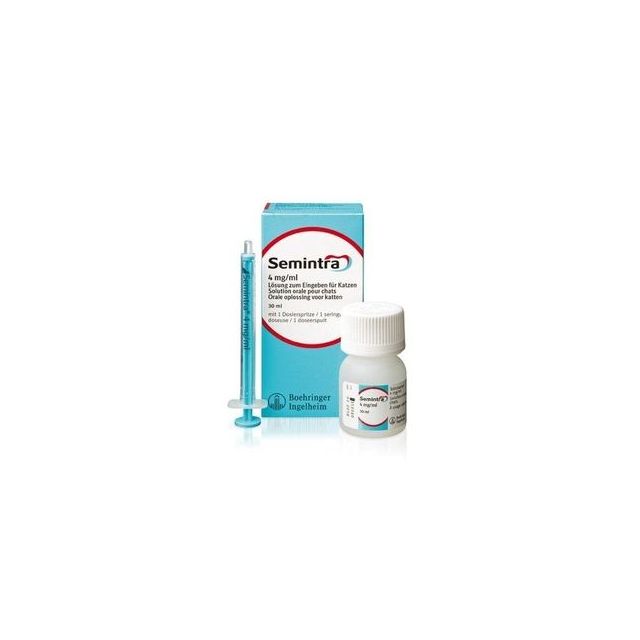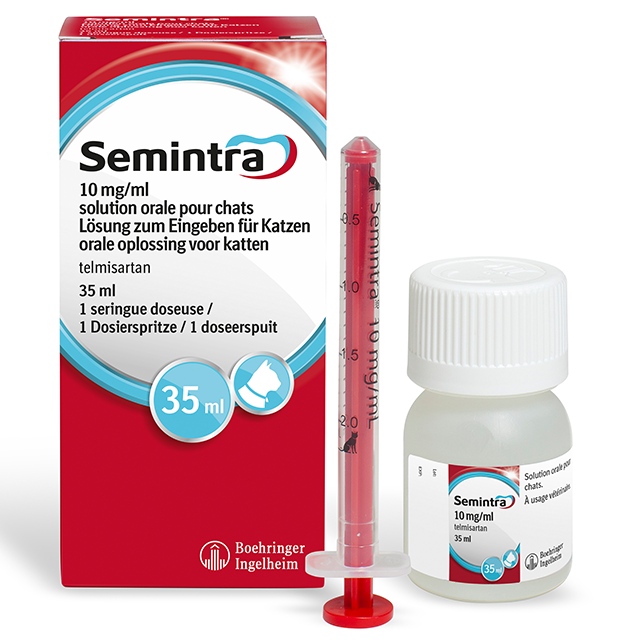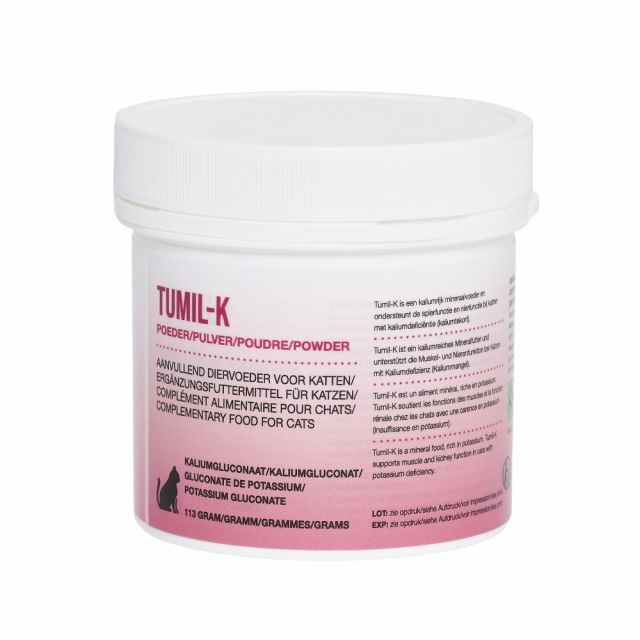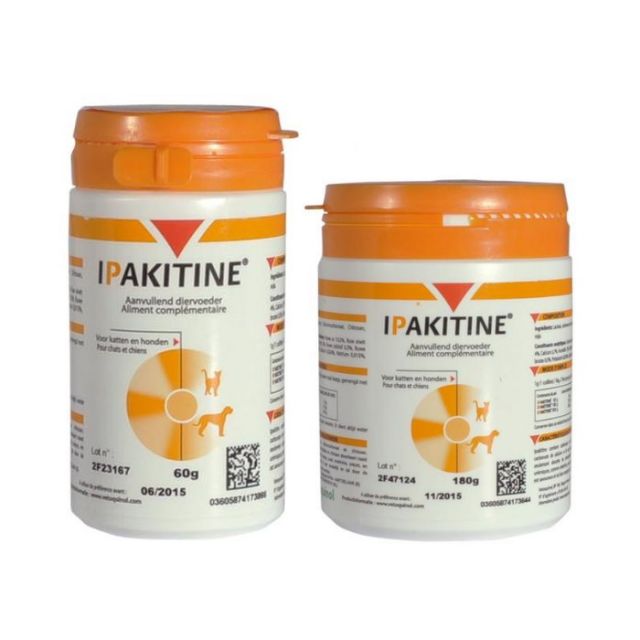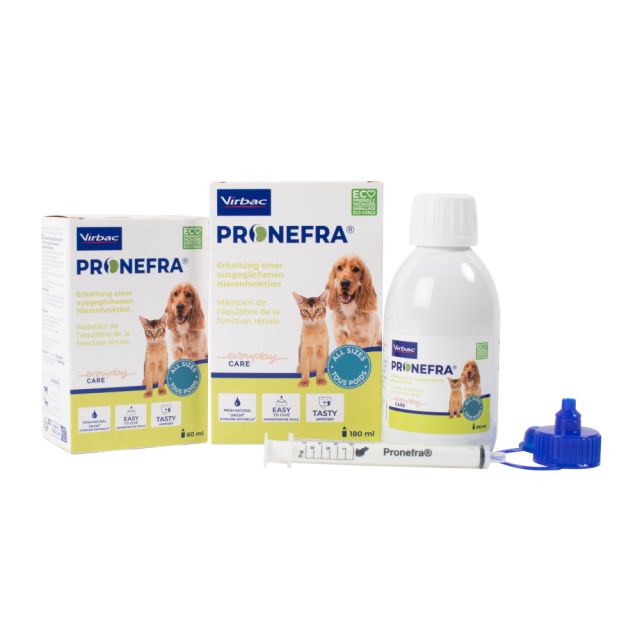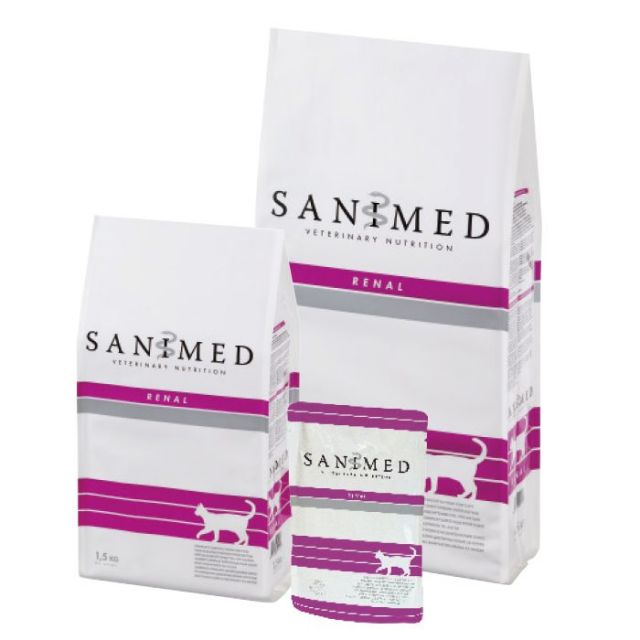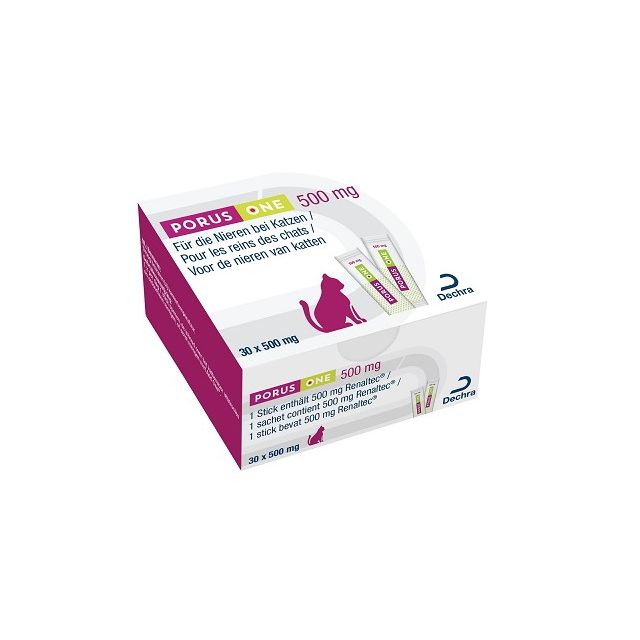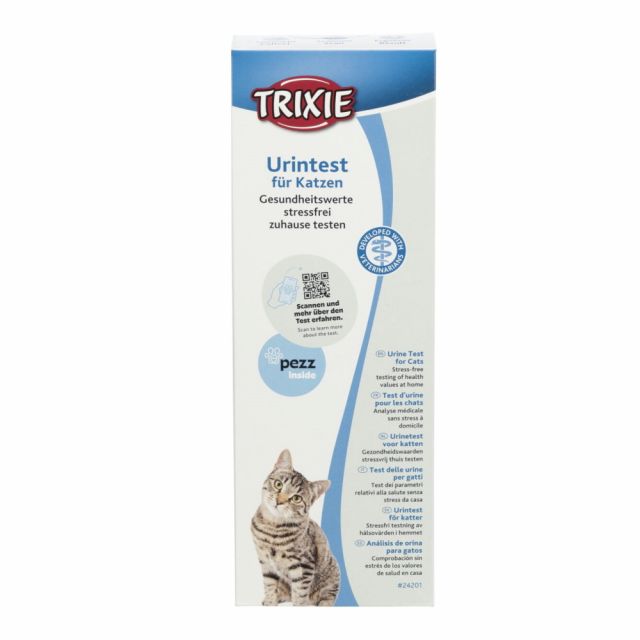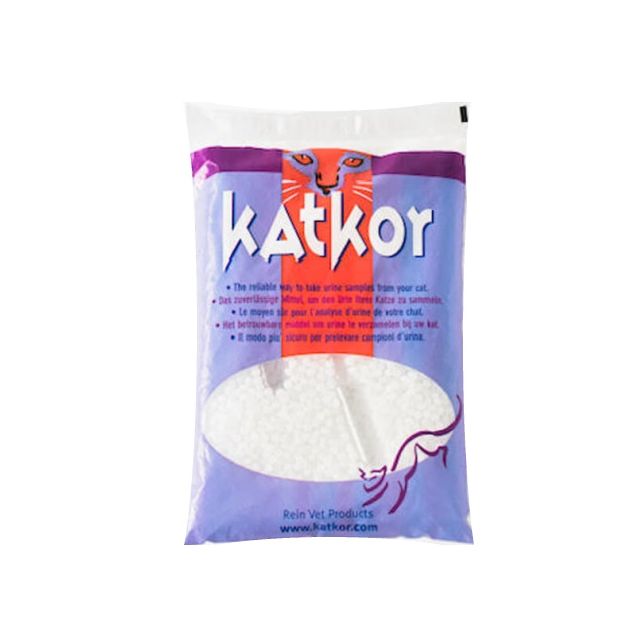Semintra
Semintra is available in two variants. Semintra 4 mg/ml is recommended to reduce protein loss via urine (proteinuria) in cats with chronic kidney disease (kidney failure, CKD). Semintra 10 mg/ml lowers the blood pressure of cats with high blood pressure. Kidney failure and hypertension often occur simultaneously.
Using Semintra in Cats
Semintra 4 mg/ml is recommended if urine tests show that a cat with chronic kidney disease is losing protein through its urine. The recommended dosage is 1 mg telmisartan/kg body weight (equivalent to 0.25 ml/kg body weight).
Semintra 10 mg/ml is given to cats with high blood pressure. The dosage is higher than for protein loss via urine, namely 2 mg telmisartan/kg body weight (equivalent to 0.2 ml/kg body weight).
Semintra is well accepted by most cats and should be administered once daily directly into the mouth or with a small amount of food. Regular physical examinations, blood pressure measurements, and urine and/or blood tests should be performed on cats receiving Semintra. To prepare, you can collect urine at home using special cat litter that does not absorb moisture.
Semintra is only available with a prescription from your veterinarian.
Additional Medications and Supplements
If your cat is receiving Semintra for chronic kidney disease or hypertension, the following medications, supplements, or diet foods may also be beneficial:
Diet Food
The most important approach in managing chronic kidney disease is special diet food, such as Sanimed Renal. This diet food ensures that the kidneys are as minimally stressed as possible by having an adjusted content of highly digestible proteins (the waste product of proteins, urea, is not properly excreted by diseased kidneys and then accumulates in the blood), a significantly reduced level of phosphate and salt, an adjusted potassium level, and high levels of anti-inflammatory fatty acids and antioxidants. The food is also extra palatable and contains a high energy content.
Supplements for Chronic Kidney Disease
Sometimes, diet food alone is not enough to sufficiently reduce phosphate levels and uremic toxins (waste products that are normally excreted by the kidneys and now make your cat feel nauseous) in the blood. Then a supplement that binds these substances, such as Ipakitine, Porus One, or Pronefra, can be added to the food. Kidney patients can lose potassium through the kidneys, causing the level in the blood to become too low. A recognizable symptom of low potassium levels is muscle weakness, often manifesting as holding the head and neck down. Tumil-K, a potassium supplement, can address this deficiency.
Other Treatment for Chronic Kidney Disease and Hypertension
Because cats with chronic kidney disease cannot concentrate their urine well, they need to drink a lot. So always ensure there is enough drinking water available and take action if your cat eats or drinks poorly. Cats with chronic kidney disease deteriorate rapidly if they do not eat and/or drink enough! Cats with chronic kidney disease often have high blood pressure. This elevated blood pressure may not decrease sufficiently with the use of Semintra 4mg/ml, and additional blood pressure-lowering medication such as Semintra 10mg/ml or Amodip may be needed. This medication is only available with a prescription from your veterinarian, and its use should be monitored with regular blood pressure checks.
Hypertension is often a result of an underlying condition such as chronic kidney disease and an overactive thyroid. An adrenal tumor can also cause hypertension. Heart problems in cats are often accompanied by high blood pressure. Sometimes no cause for high blood pressure is found. Of course, any underlying conditions must also be treated, for example by providing a kidney diet or medication for an overactive thyroid such as Felimazole or Thiamacare. For heart problems, diuretics such as Furosoral are sometimes prescribed by the veterinarian. Since both chronic kidney disease and hypertension are common in older cats, the symptoms often appear late (or not at all) and both conditions can have many consequences if left untreated, it is wise to have your older cat checked regularly by your veterinarian. If you have any questions about Semintra or about kidney failure or hypertension in cats, please contact us.

